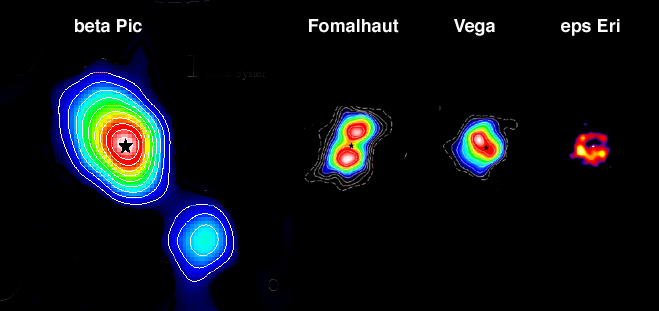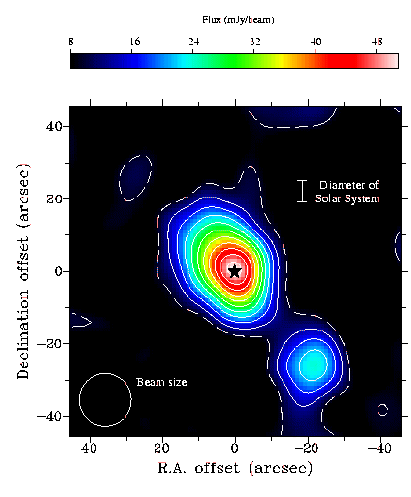Notice that the size of the disk seen here is
comparable to the sizes of the Fomalhaut,
Vega, and epsilon Eri disks imaged at 850 microns.
However, beta Pic is three
times farther than Vega and Fomalhaut, and six
times farther than epsilon Eri.
Hence, the true physical size of beta Pic's disk
is many times greater than that of the
other disks.
A new discovery and great mystery in the beta
Pic image is the presence of a "blob" of emission to the southwest
of the star (lower right). Notice
that its spatial extent rivals that of Fomalhaut, Vega, and epsilon Eri,
and that
it is found quite far from the star (i.e. the
central heating source). The blob's center is located a minimum distance
of 650 AU (33.6") from beta Pic. The mass
of dust required to produce so much emission so far from the star is
equal to all the dust that produces the rest of the
disk emission (the white, red, yellow, green countours around the
the central star represent 1.2 lunar masses of millimeter-sized
dust grains). If that much dust existed within
the blob, then it would easily be seen in reflected light - it
is not.
Therefore, we still do not know what is causing
the blob of emission southwest of beta Pic.
Holland, W. S., Greaves, J. S., Zuckerman, B.,
et al. 1998, "Submillimetre images of dusty debris around
nearby stars", Nature, vol. 392, pg. 788.
Dent, W.R.F., Walker, H.J., Holland, W.S. and Greaves, J.S. 2000,
"Models of dust structures around Vega-excess stars", MNRAS, 314, 702-712.

Copyright, please do not reproduce
without permission from the authors.
